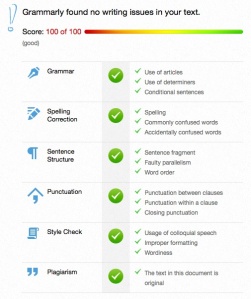 It was a strange place for an English class, the small, dilapidated building near the campus center. Neglected, the building was in its last year of service before a scheduled overhaul and modernization. The rectangular structure lacked architectural imagination, two-stories with a corridor down the middle–not exactly inspiring. Certainly the size and stature of the construction contributed to its orphan status, no respectful academic department would claim it permanently and pass up better digs elsewhere on campus.
It was a strange place for an English class, the small, dilapidated building near the campus center. Neglected, the building was in its last year of service before a scheduled overhaul and modernization. The rectangular structure lacked architectural imagination, two-stories with a corridor down the middle–not exactly inspiring. Certainly the size and stature of the construction contributed to its orphan status, no respectful academic department would claim it permanently and pass up better digs elsewhere on campus.
Out of overflow necessity, the English department utilized a few classrooms and placed a number of scant offices for graduate teaching assistants, but otherwise the environment was devoid of prominent faculty members. Still, I loved the ramshackle setting, the tattered carpet inviting book lovers to discussions of great literature.
“You’re the only engineer we’ve ever had that took World Literature as an elective,” my adviser had mused when I sought his approval for my upcoming semester’s courses. I nodded, but remained silent. I lived for liberal arts classes. Who wanted to sit in front of a computer all day or struggle in an electronics lab when they could read a book and write an essay? Engineering was a plan to earn a living, nothing more; my real enjoyment came from the precious English, history, political science, philosophy, or other non-technical classes that dotted my course schedule.
My world literature classmates and I were all trying to check-off a liberal arts requirement; there was not an English major among us. Yet, the cozy building warmed us to explore the subject, and the kindly professor, probably regretting her draw of such a low-level class at the start of the semester, surely delighted in her most unlikely student group as becoming the most scholarly.
Although it was unlikely that the class participants would ever cross academic paths again in a large university, our small class gelled to have purposeful discussion. I did my part to contribute and was enthusiastic about a number of readings. I also looked forward to seeing a particular young man who sat askew from me. With a slight build and a kind face, he welcomed our short conversations before and after class; I was smitten. However, outfitted in fraternity attire, I knew he was off limits. The Greeks didn’t date out of their system, and I was kind of surprised that he talked to me at all. I could only assume that he was a bit lost without his “brothers.”
He may not have been the only misfit. I’m sure the professor wondered who the geek was that seemed to have both genuine interest and respectable talent. A few papers later and the professor called me aside.
“What’s your major?” she inquired. In standard engineering attire, jeans and a T-shirt, I confessed to what she already suspected.
“Well, you write very well for an engineering major,” she said. My newest “A” was passed into my hands. I beamed a smile before hurrying away to the engineering building.
As class progressed, we became responsible for outside reading in addition to books we discussed in class. Any book was acceptable. As an excuse to go to the library that wasn’t in the engineering school, I made a beeline for the Russian literature section. (I have blogged about this before…) Russian authors were tortured souls with something to say. Lesser works were harder to critique; it was best to pick something with a little meat on the bone.
I plucked Ivan Turgenev’s Fathers and Sons from the shelves and communicated my choice to the professor, Dr. Hyers.
“How wonderful,” she said. “I’m teaching that book in another class.” Well, that wasn’t what I expected to hear. The stakes were now higher. I felt like the idiot musician who had inadvertently picked a judge’s favorite concerto for a competition. The standard for achievement would be higher when the professor knew the book. Dumb me.
The book’s pages peeled away as I devoured my Russian choice. So enamored, I wrote my essay immediately upon finishing the book, long before the due date. (Sadly, I must confess this is the only time I ever completed a school assignment in this manner.) I kept the essay in my notebook. When the professor called for the papers in class, I was rather surprised. The due date had been erased from my memory.
A few weeks later, Dr. Hyers returned our papers. An “A” plopped on my desk–phew! My romantic interest turned aside to nod his approval. Even better, he asked if he could take my essay home to read. Without hesitation, I handed my paper into his gorgeous hands. At least my words would accompany him home.
He promptly returned my paper at the next class with a thank you. I thought nothing more of it until later in the semester when I learned that fraternities maintained files of essays for their members to plagiarize at will. Had my most glorious paper been cataloged for future cheaters? It was too late to undo what had been done, if it had been done at all. The class ended, and I was only left to wonder about my paper’s fate…for the next 20+ years.
A couple of weeks ago, I came across an online add for the company Grammarly. I had heard about tools for teachers to check for plagiarism, but had never seen anything free before. Instantly intrigued, I retrieved my Turgenev paper out of storage and typed the first paragraph into Grammarly.
“Ivan Turgenev’s Fathers and Sons is a masterful study of the ideological differences between generations. The youth is representative of inevitable change and progression. The elder group, very realistically, is tormented by any alterations in tradition. Turgenev’s two factions endure coexistence, but not without trial.”
A quick click and Grammarly was off to check my work. Voila! Grammarly confirmed that my paper had eluded the grasp of the internet. While I have no way of knowing whether my paper was every copied, somehow, I feel better.
